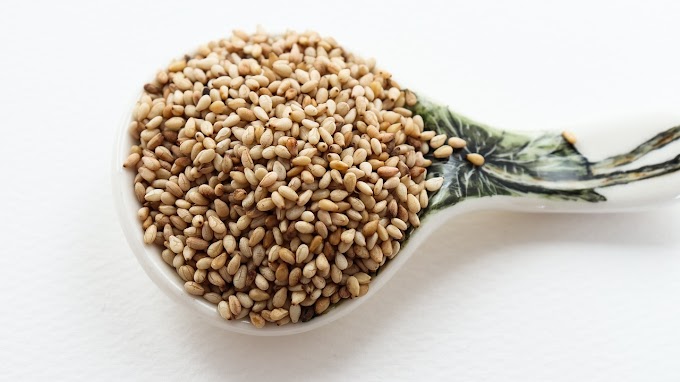Emotional Health
Introduction
Amid our daily whirlwind, the profound importance of emotional well-being often eludes us. Vibrant Emotional Health is not a fleeting sentiment but an ongoing, transformative process that demands understanding, management, and devoted care. This article seeks to illuminate the critical role of emotional health, offer practical approaches to enrich it and unravel its central significance in crafting a life of fulfillment.
Vibrant Emotional Health:
Beyond the mere absence of mental illness, emotional health encompasses stress resilience, the art of building meaningful connections and deploying effective coping mechanisms. Vibrant Emotional Health stands as the cornerstone of a fulfilling life, shaping our thoughts, actions, and overall worldview.The Ripple Effect on Overall Well-being:
Physical Health: Robust research attests to the interconnection between emotional and physical well-being. Chronic stress and negative emotions can pave the way for an array of health issues, ranging from cardiovascular complications to compromised immune systems. Nurturing vibrant emotional health becomes a catalyst for bolstering physical vitality.Cognitive Prowess: Emotions intricately influence cognitive processes such as decision-making, problem-solving, and memory. A well-cultivated emotional state augments cognitive function, fostering improved concentration, heightened creativity, and overall mental sharpness.
Relationship Alchemy: Flourishing relationships pivot on emotional well-being. Proficiency in communication, empathy, and conflict resolution emanates from understanding and adeptly managing emotions. Vibrant Emotional Health nurtures profound connections, contributing significantly to life satisfaction.
1. Self-Awareness:
Mindfulness Immersion: Integrate mindfulness practices like meditation and deliberate breathing exercises into your daily regimen. These practices fortify self-awareness, anchoring you in the present moment.Journaling Journey: Maintain a journal as a compass to navigate your emotions, identify triggers, and discern patterns. This introspective tool unveils valuable insights into your emotional landscape.
2. Emotion Regulation:
Trigger Identification: Discern situations or circumstances triggering negative emotions. Devise and implement healthy coping mechanisms to adeptly navigate these challenges.Expressive Outlets: Seek constructive avenues for expressing emotions, be it through creative pursuits, heart-to-heart conversations with trusted confidantes, or professional support when necessary.
3. Resilience Building:
Cultivate Growth Mindset: View challenges as stepping stones to personal growth rather than impediments. A growth mindset fosters resilience, empowering you to rebound from setbacks with newfound strength.Positive Habit Cultivation: Forge routines that radiate positivity, encompassing regular exercise, a balanced diet, and ample sleep. These habits contribute to a robust and vibrant emotional state.
4. Social Connection:
Relationship Nurturing: Prioritize the cultivation of meaningful connections with friends, family, and community. Social support stands as a robust buffer against stress and significantly contributes to emotional well-being.Community Engagement: Immerse yourself in groups or activities aligned with your interests. Sharing experiences and perspectives with kindred spirits fosters a sense of belonging and emotional support.

Vibrant Emotional Health in a Fulfilled Life:
A life enriched with emotional vitality inherently exudes fulfillment. Prioritizing and nurturing emotional well-being unlocks a spectrum of benefits:Heightened Happiness: Vibrant Emotional Health contributes to an overarching sense of joy and contentment, enabling you to savor life's joys more profoundly.
Sharper Decision-Making: Emotionally grounded individuals make astute decisions, unburdened by excessive stress or negative emotions, fostering clarity and rationality.
Augmented Productivity: A positive emotional state acts as a motivational catalyst, enhancing focus and productivity across personal and professional spheres.
Resilience Amid Challenges: Life's ebbs and flows are inevitable, and those with vibrant emotional health navigate challenges with resilience and tenacity.
In Conclusion:
Cultivating Vibrant Emotional Health is a perpetual expedition that profoundly enriches the overall quality of our lives. By comprehending the significance of emotional well-being and adopting pragmatic strategies to enhance it, we forge a path toward a life of fulfillment and meaning. Remember, the pursuit of emotional health is not merely an individual odyssey; it radiates positive effects, creating a ripple of well-being that extends into your community and beyond. Embrace the odyssey toward vibrant emotional health, relishing the myriad rewards it brings to every facet of your life.FAQ's
1. What is Vibrant Emotional Health?Vibrant Emotional Health is a state of emotional well-being characterized by a dynamic balance of positive emotions, effective stress management, and the ability to navigate life's challenges. It goes beyond the absence of mental illness, encompassing the cultivation of resilience, healthy relationships, and positive coping mechanisms.
2. Why is Emotional Health Important for a Fulfilling Life?
Emotional health plays a pivotal role in overall well-being. It influences physical health, cognitive function, and relationships. Nurturing vibrant emotional health contributes to increased happiness, improved decision-making, enhanced productivity, and resilience in the face of challenges, ultimately leading to a more fulfilling life
.
3. How can I Enhance Self-Awareness for Better Emotional Health?
3. How can I Enhance Self-Awareness for Better Emotional Health?
Incorporate mindfulness practices, such as meditation and deep-breathing exercises, into your daily routine. Additionally, maintaining a journal to track emotions, triggers, and patterns can provide valuable insights into your emotional landscape, fostering self-awareness.
4. What are Healthy Coping Mechanisms for Emotion Regulation?
Identifying triggers is the first step. Subsequently, finding constructive ways to express emotions, whether through creative outlets, conversations with trusted friends, or seeking professional support when necessary, can be effective in regulating and managing emotions.
5. How Can I Cultivate a Growth Mindset for Resilience?
Embrace challenges as opportunities for personal growth rather than obstacles. A growth mindset involves viewing setbacks as learning experiences and developing a positive perspective on challenges, contributing to resilience.
6. What Role do Positive Habits Play in Emotional Health?
Positive habits, including regular exercise, a balanced diet, and sufficient sleep, contribute to a resilient and vibrant emotional state. These habits not only impact physical health but also play a crucial role in maintaining emotional well-being.
7. Why is Social Connection Important for Emotional Health?
Building and nurturing meaningful relationships provide social support, which acts as a robust buffer against stress. Engaging with friends, family, and community helps create a supportive network, contributing significantly to emotional well-being.
8. How Does Emotional Health Affect Decision-Making?
Emotionally grounded individuals make better decisions as they can think more clearly and rationally, unburdened by excessive stress or negative emotions. Emotional health enhances cognitive function, leading to improved decision-making abilities.
9. Can Vibrant Emotional Health Impact Physical Health?
Yes, there is a strong connection between emotional and physical health. Chronic stress and negative emotions can contribute to a range of health issues. Nurturing vibrant emotional health positively influences physical vitality, contributing to overall well-being.
10. Is Cultivating Vibrant Emotional Health a Continuous Process?
Yes, nurturing vibrant emotional health is an ongoing journey. It involves self-reflection, adopting positive habits, and continually developing coping mechanisms. The process evolves as we face new challenges and opportunities for personal growth.







